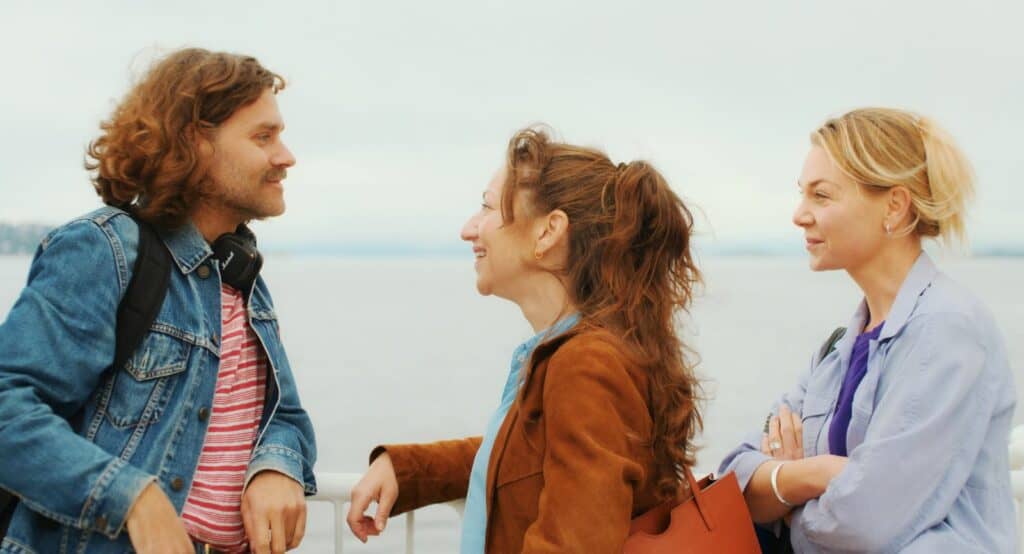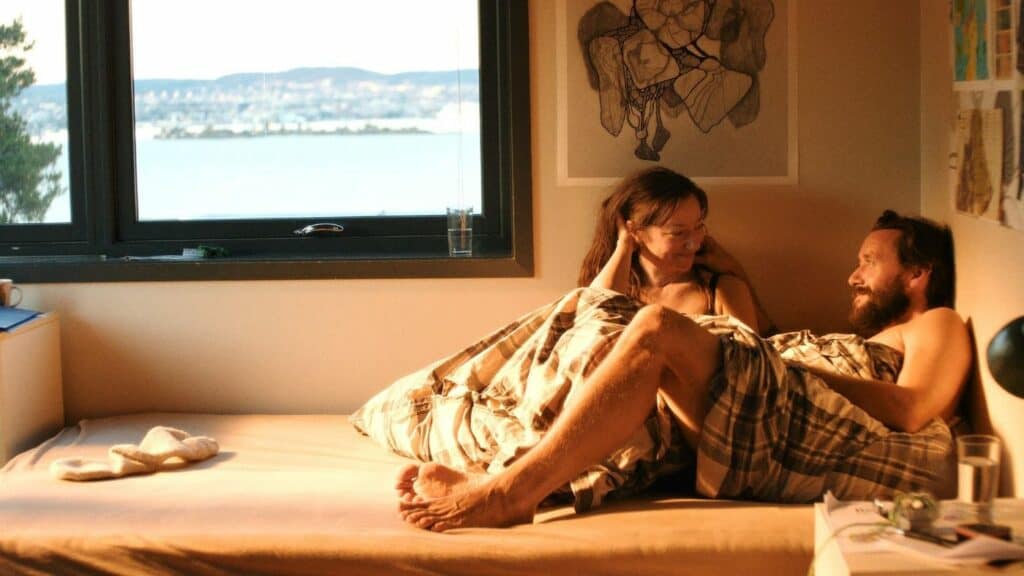When I watched Éric Rohmer’s summery tale of love and sex, Pauline à la plage (1983), at the Swedish premiere in 1984, a row broke out between audience members post-screening. Some spectators were disappointed and shouted angrily that Rohmer had become more trivial. When a few people tried to oppose those loud, elderly men, they were shouted down. The consensus in the unruly crowd was that the film was too immature. Things have changed significantly since then. Not merely the fact that a film in the same Rohmer cycle would win the Golden Lion in Venice three years later.1Le rayon vert, Above all, triviality in so-called arthouse cinema is no longer perceived as a problem.

Love (Kjaerlighet) is the second part of a trilogy following Sex earlier this year. The trio concludes with Dreams, which has only been screened in Norway thus far. Love was screened on the last competition day of the 2024 Venice Film Festival and subsequently in the Best of Festivals section at the Black Nights Film Festival. The main characters are Marianne, who is a doctor in the Oncology ward, and Tor, who is a nurse at the same establishment. We first see Marianne explaining to a patient that he has cancer, but Tor feels that the message didn’t really sink in. It turns out that he is right, and that won’t be the last time that happens.
No Love Lost
One evening, the two meet on a ferry, and then it turns out that Tor is using the ferry for a different kind of cruising, meeting men for quick sex. Marianne listens and wonders if she should benefit from her singlehood and engage in sex without a relationship. After Marianne leaves the ferry, Tor meets the psychologist Bjørn, but the outcome is not the expected one. Did I mention that Marianne has a best friend who tries to arrange a festival with the theme of sexual openness? The resistance from her colleagues is the closest to a conflict that the film will ever get. Conflicts are not essential in cinema, but the characters’ behaviour is constantly childish.

Some critics have compared Haugerud to the aforementioned Rohmer, but the contrast concerning depth and psychological understanding is immense. A more apt comparison would be The Worst Person in the World (2021), which is equally shallow but surprisingly popular, even among adults. Both films are almost incomprehensibly lightweight, but Haugerud’s style is more mellow, and the film flows through an almost utopian reality. Late in the film, Marianne will answer in the affirmative if she is a socialist. When the director adds the same weighty element as Trier did, it feels more organic here, not least considering the environment. However, it helps little to add some true weight or value to the film.
After the screening, I overheard a Swedish spectator comment that the film was too sweet. That hardly begins to describe my feelings towards the film. It is not merely the fact that it depicts people who are annoyingly immature but also the fact that the film generally doesn’t seem to be seen as such, especially by Anglo-Saxon critics. I have no desire to watch the remaining two films in the trilogy. Love and Sex were both screened in the Best of Festivals section at PÖFF, which is a puzzling choice from a year that has given us Pepe, C’est pas moi, and Stranger Eyes. The latter was the best competition film in Venice and one of the year’s best films.
Love, on the other hand, is as profound as a soap bubble, and it bursts just as easily. The cinematography, which doesn’t boast a single memorable image, illustrates this perfectly.

